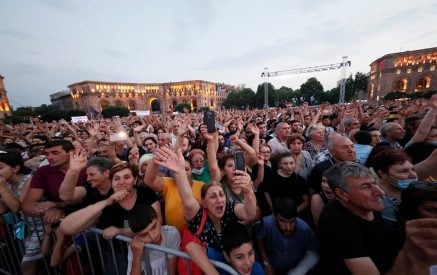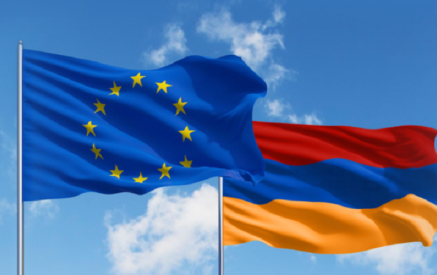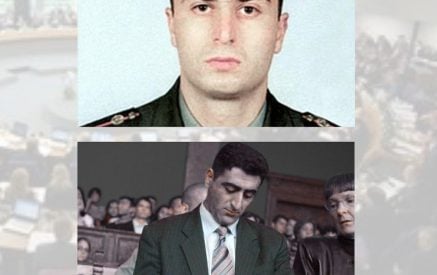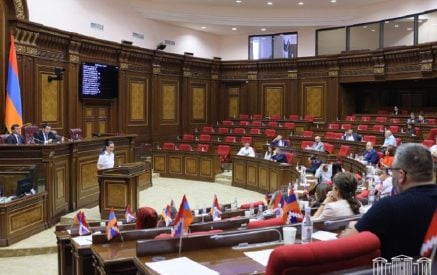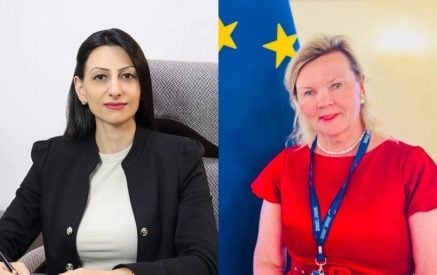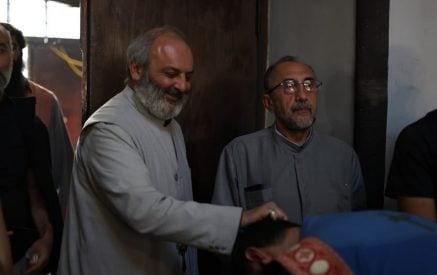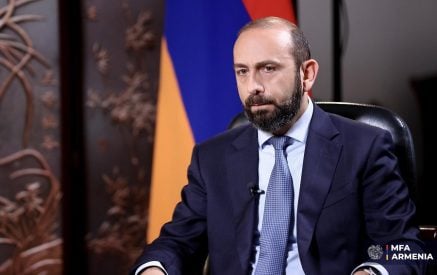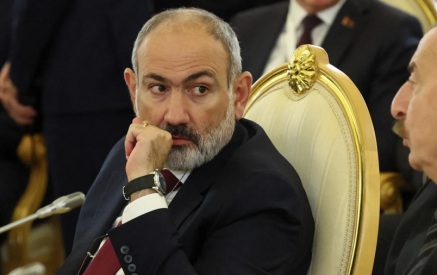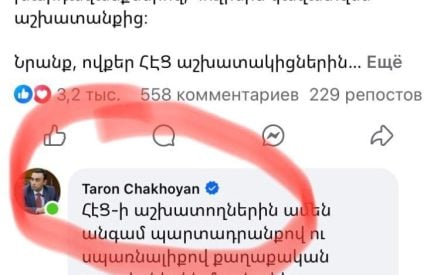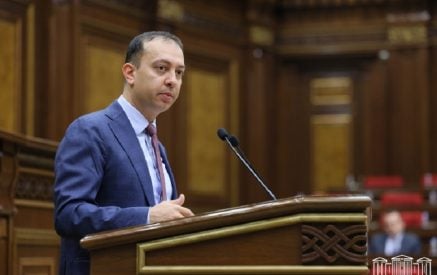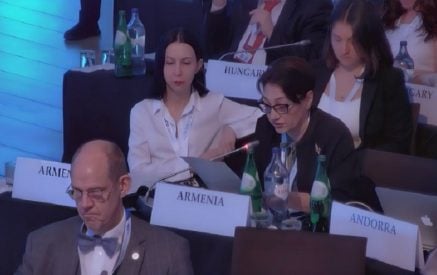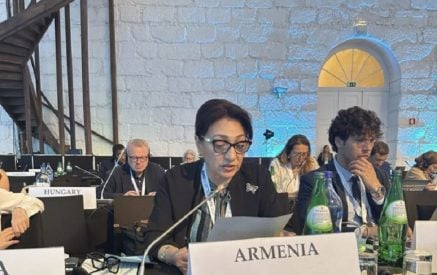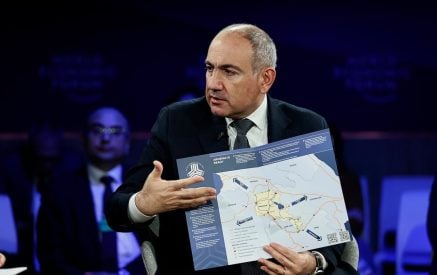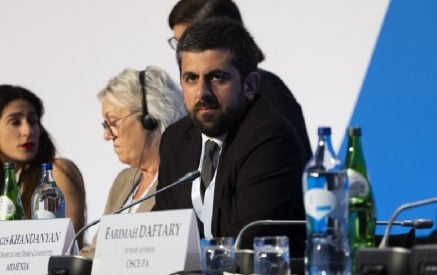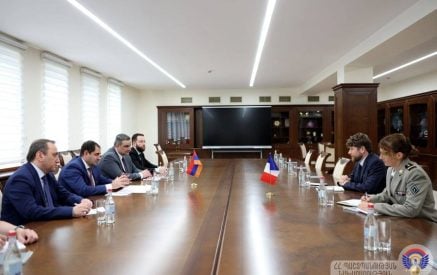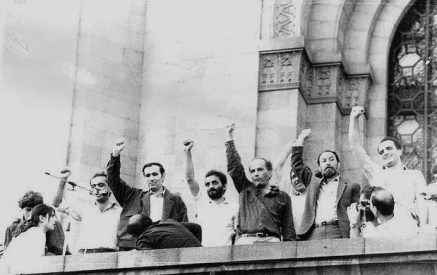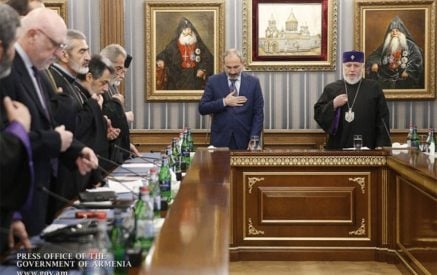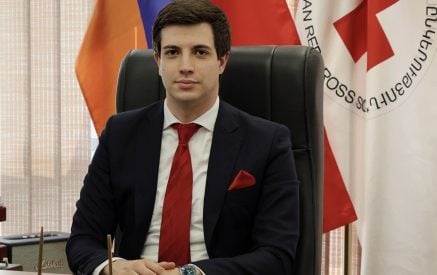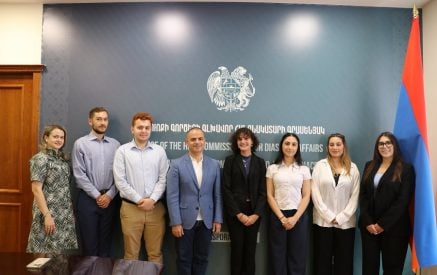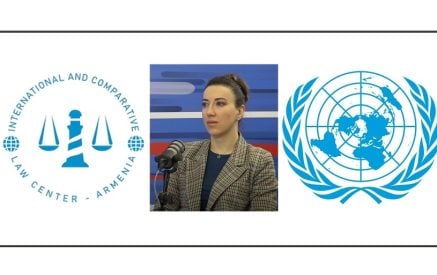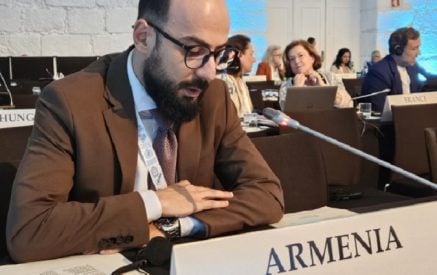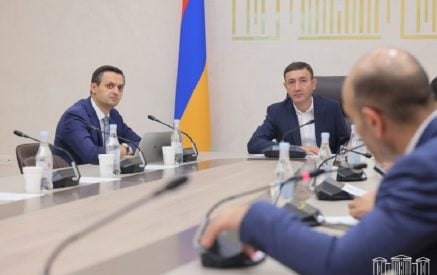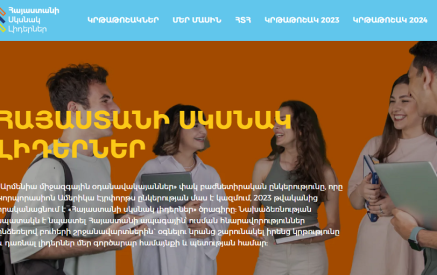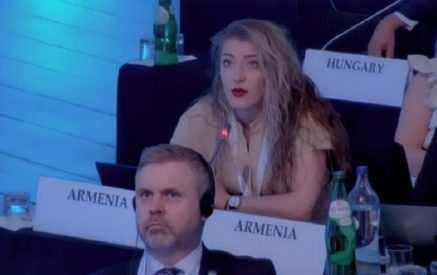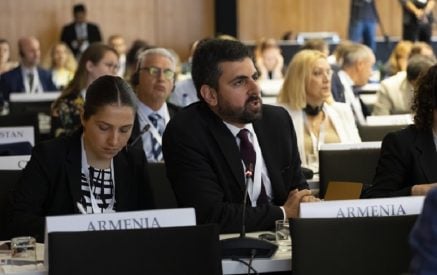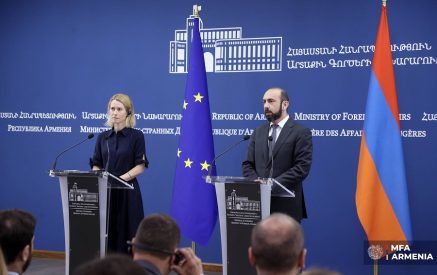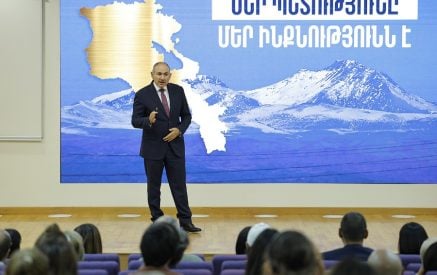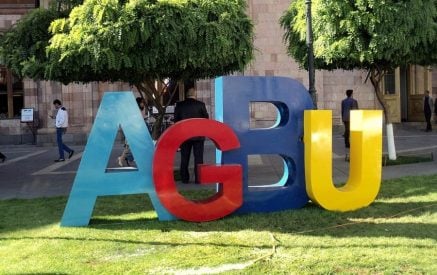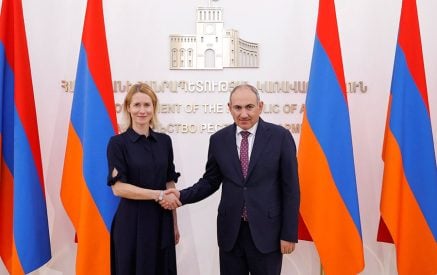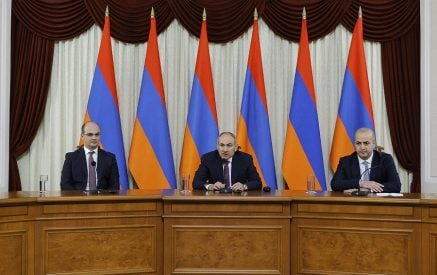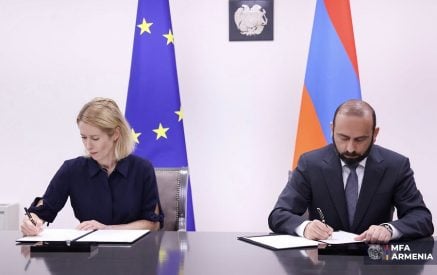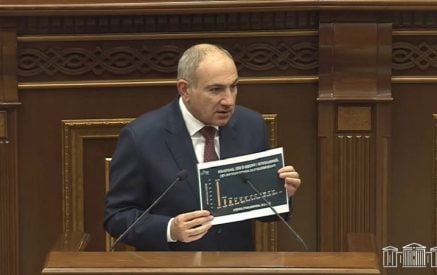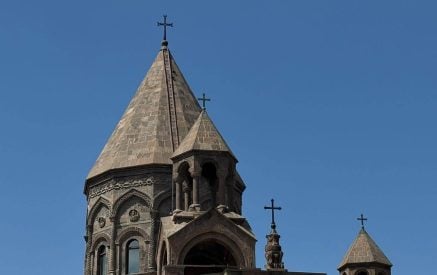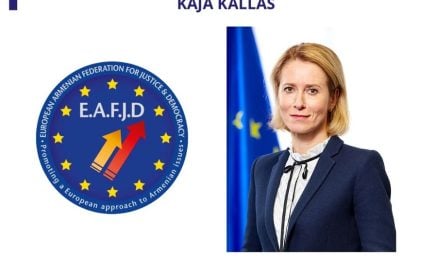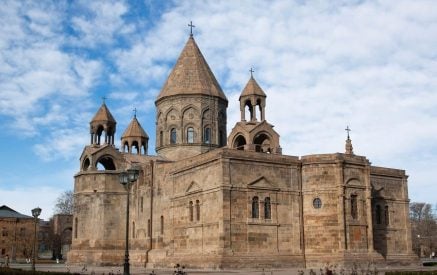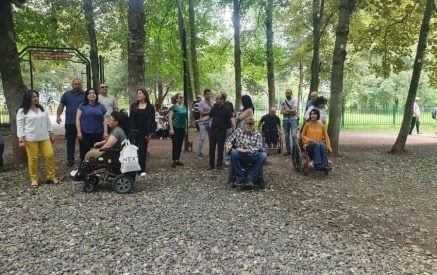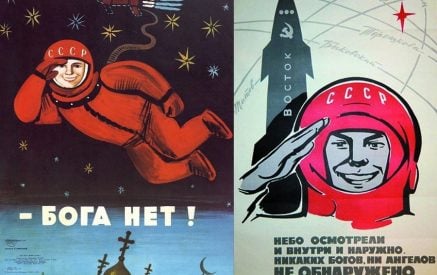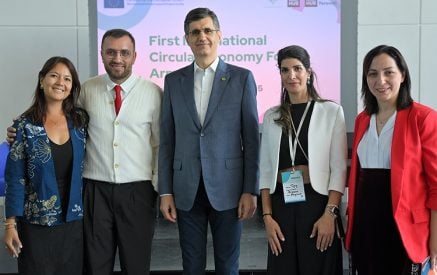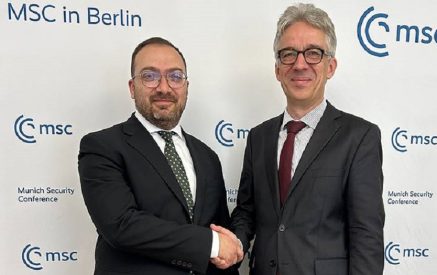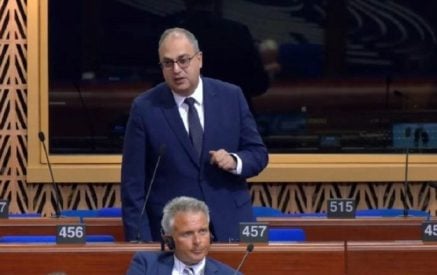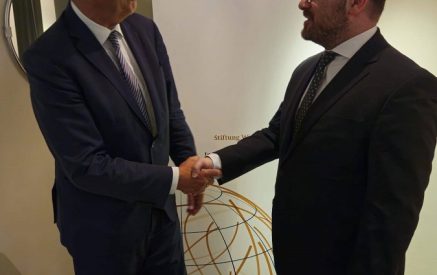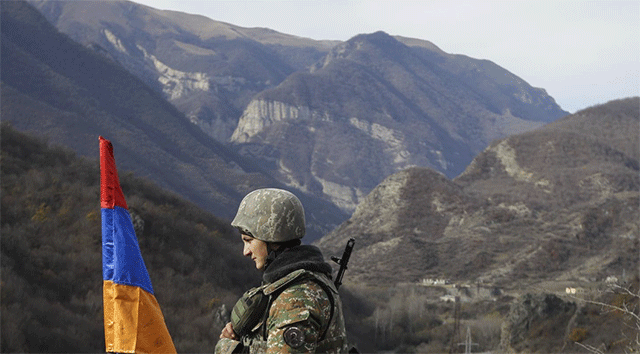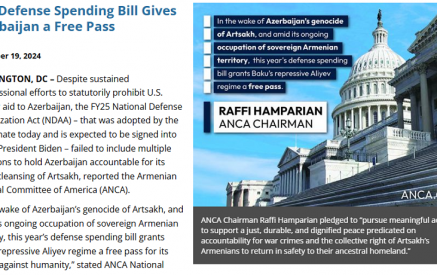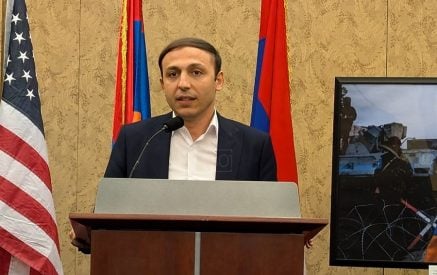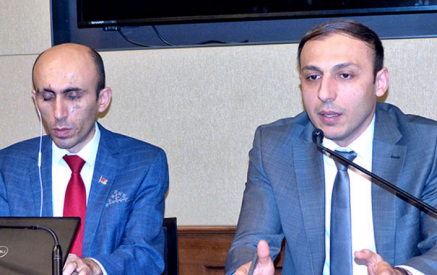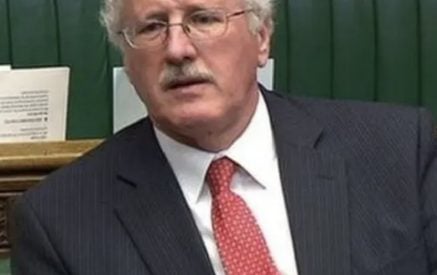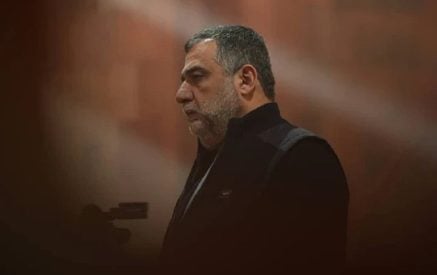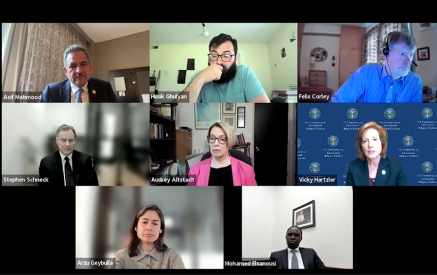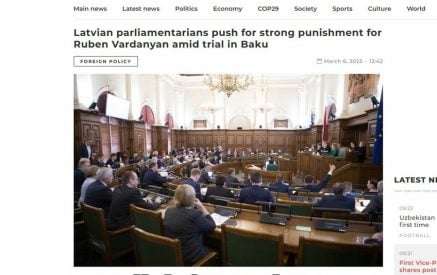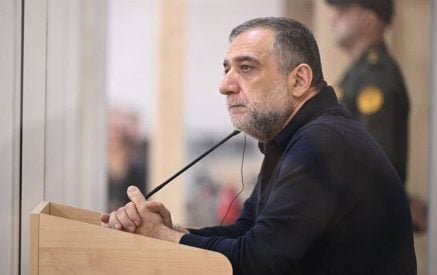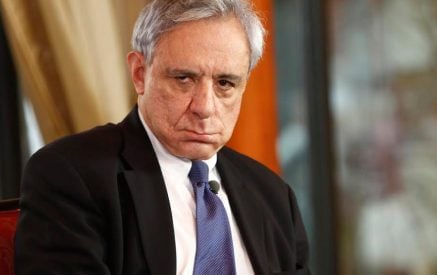The Senate Foreign Relations Committee chairman is calling on the Biden administration to pull back aid to Azerbaijan as hostilities flare up.
Gayane Beglaryan worries she’ll be unable to bring her 3-year-old daughter for her next cancer treatment.
The 28-year-old mother from Nagorno-Karabakh, a tiny, disputed region in the south Caucasus, has been trapped in her native city of Stepanakert for the past 24 days as Azerbaijani activists blockade the only road connecting the territory to the outside world. She watched as her panicked neighbors bought all the food in the supermarkets and the vegetable sellers shuttered their stalls. She had planned to travel to Germany on Jan. 14 for a follow-up appointment for her daughter’s cancer treatment. But as the date draws nearer, she is increasingly concerned that she and her daughter will be stuck in the landlocked region.
Read also
“We were in Germany five months ago. She underwent chemotherapy and had two surgeries. The doctors told us it was obligatory that we come back,” Beglaryan said. “Here, there is no opportunity for her to undergo the necessary procedures and treatments to see if everything is going all right.”
The dispute over Nagorno-Karabakh is a relic of the Soviet Union. The region is internationally recognized as part of Azerbaijan, but most of the population is ethnic Armenian with an independent government based in Stepanakert. The disputed area is highly dependent on neighboring Armenia, which provides crucial goods and hundreds of millions of dollars in humanitarian support each year to the estimated 120,000 to 150,000 Armenians who live there.
Armed conflict between Azerbaijan’s military and the Armenians of Nagorno-Karabakh has flared on and off since Baku and Yerevan gained independence from the Soviet Union in the 1990s. The latest flare-up in the frozen conflict occurred in 2020, when six weeks of violence left over 5,000 people dead and tens of thousands displaced.
That latest bout of bloodshed ended when Russia deployed around 2,000 peacekeepers to the region under an agreement meant to last until 2025. But with Moscow now bogged down in Ukraine and unable to play a proactive mediating role, the dispute is escalating again.
Moscow remained largely uninvolved when some fighting broke out between Azerbaijan and Armenia in September 2022. Then-House Speaker Nancy Pelosi visited Armenia at the time, calling Azerbaijan’s attacks “illegal and deadly.”
Now, for almost a month, Azerbaijani activists have demonstrated around the Lachin corridor, the only road connecting Nagorno-Karabakh’s Armenian population to food, medicine, fuel, and international airports, causing a standoff that led to a complete blockade.
Food, like eggs and potatoes, is now rationed. Mothers complain they can’t get fresh fruit or vegetables for their children. People in the region say a humanitarian crisis is imminent, and they’re looking to the international community for answers.
“We were confident we would be in peace and protected until at least 2025. But now the situation is really horrible,” said Gohar Mnatsakanyan, a 41-year-old mother of three. “We see many countries and international organizations appeal to Azerbaijan, but nothing helps.”
Mnatsakanyan left Nagorno-Karabakh for a brief period in 2020 to avoid the brutal fighting that forced her city’s residents into basements and makeshift bomb shelters. But when they heard that Russian peacekeepers would be stationed in the region, she and her children decided to return home. Now she wonders if that was a mistake.
Nagorno-Karabakh’s human-rights ombudsman, Gegham Stepanyan, was visiting Armenia’s capital, Yerevan, for an event on genocide prevention when the blockade began. He has been unable to return home in the weeks since.
Stepanyan argues that the Russian peacekeepers failed to resolve the standoff because they don’t have an international mandate and are not accountable to anyone. Azerbaijan’s state media, sensing Russia’s current weakness, has started to criticize the Russian peacekeepers openly.
“The Azerbaijani side is acting in an atmosphere of impunity,” Stepanyan said. “The international community should act in a very clear way, for example, by imposing sanctions on Azerbaijan and compelling Azerbaijan to follow its obligations under international law.”
At least one member of Congress is calling for precisely that. Sen. Bob Menendez, the chairman of the Foreign Relations Committee, noted that Azerbaijan’s “coercive blockade” threatens famine for Armenians living in Nagorno-Karabakh and demonstrates Azerbaijani President Ilham Aliyev’s “callous disregard for human life.”
“I again call on the United States to halt all security assistance to Azerbaijan, and the Biden administration to issue a determination under the Global Magnitsky Human Rights Accountability Act to levy sanctions against complicit Azerbaijani officials,” Menendez told National Journal. “We must hold the regime accountable for its heinous atrocities and urge our democratic partners and allies worldwide to do the same.”
Menendez, who is married to an Armenian American, has emerged as a vocal advocate for Armenians in their struggle against Azerbaijan. During a Foreign Relations Committee hearing on U.S. policy in the Caucasus in November, the committee chairman had a tense exchange with Karen Donfried, the assistant secretary of State for European and Eurasian affairs, and Philip Reeker, the State Department’s senior adviser for Caucasus negotiations.
Menendez slammed the State Department for waiving Section 907 of the Freedom Support Act, which restricts U.S. assistance to Azerbaijan over its actions toward Armenia and Nagorno-Karabakh. The Government Accountability Office also found that the State Department has failed to provide Congress with information about how U.S. assistance to Baku impacts the military balance between Azerbaijan and Armenia.
“How on earth can the United States justify sending any kind of support—security or otherwise—to a regime in Baku?” Menendez asked at the hearing. “It’s inexcusable. I personally think it is morally repugnant.
“The people of this region don’t want to live under the threat of violence. They don’t want autocratic rule imposed on them by the barrel of a gun,” he added. “And that means ensuring that a peace deal does not lead to ethnic cleansing for the Armenian population of Nagorno-Karabakh. It means tackling the needs of the humanitarian crisis there. It means holding accountable those who order and carry out the violence we have seen in this region.”
The U.S. has provided over $1.5 billion in assistance to Azerbaijan since 1992, including some for peace and security.
A State Department spokesperson, who asked to talk on background in order to speak freely, said the U.S. remains “concerned about impeded access to the Lachin corridor and the humanitarian implications of this situation.”
“This sets back the peace process and undermines international confidence,” the spokesperson said. “We call for the full restoration of free movement through the corridor. The way forward for all issues is through negotiations.”
Azerbaijan’s government claims that the people blocking the Lachin corridor are “eco-activists” protesting mining in the region. Officials have denied blocking the road. But people in Nagorno-Karabakh argue that the demonstrators are government operatives using scare tactics to drive Armenians out of their homes.
The foreign ministry of Azerbaijan said “claims about a ‘blockade’ and a ‘humanitarian catastrophe’ in the region are groundless. They are only designed to create tensions on the ground. Peaceful protests of Azerbaijani activists are being held with a view to preventing the illegal economic activities and the abuse of the Lachin road, which is intended only for humanitarian purposes.
“The fact is that every day multiple vehicles belonging to the International Committee of the Red Cross, the peacekeeping contingent, and medical vehicles pass through the road without hindrance.”
Vardan Tadevosyan, a 56-year-old physical therapist, moved to Nagorno-Karabakh from Armenia to open the region’s first rehabilitation center in the 1980s. His center helps disabled people and provides tens of thousands of adult diapers to people with mental and physical disabilities each month. Now the blockade threatens to derail his ability to help those in need.
“I’m very proud of the work I’ve done with my team. No one needs to go to Armenia because of a lack of rehabilitation services here,” Tadevosyan said. “Now we’re not getting any medicine from Armenia. We’re totally short on diapers. Every month we provide around 15,000 diapers to patients. We get diapers each month from Armenia, but now my patients are in a really difficult situation.”
Tadevosyan also worries about running out of catheters for his patients. Doctors don’t have fuel for their vehicles and find it difficult to visit patients at home or transport disabled children to school. He said the fuel in the organization’s storage facility would run out by the end of January.
If the blockade continues unabated, Beglaryan said she might apply to the International Committee of the Red Cross to evacuate her daughter so she can reach her oncologists in Germany. Otherwise, she doesn’t know how her toddler will receive the follow-up care she needs.
“We hope the road will be open soon, and we can live our lives as we did before,” she said. “We just want to live peacefully on our land.”



